How to survive an amateur bike race
Last Sunday, I traded in my usual leisurely, solo rides for the exhilarating chaos of a Jedermannrennen, an amateur bike race. Typically, I’m the type of cyclist who enjoys the solitude of long-distance treks like Leipzig to Berlin (160km) or even Leipzig to Hannover (300km). For me this is a kind of meditation. My mind is free and my body has work to do. My style has always been “slow and steady,” averaging less than 20km/h. But this race introduced me to the vibrant, high-speed world of the peloton.
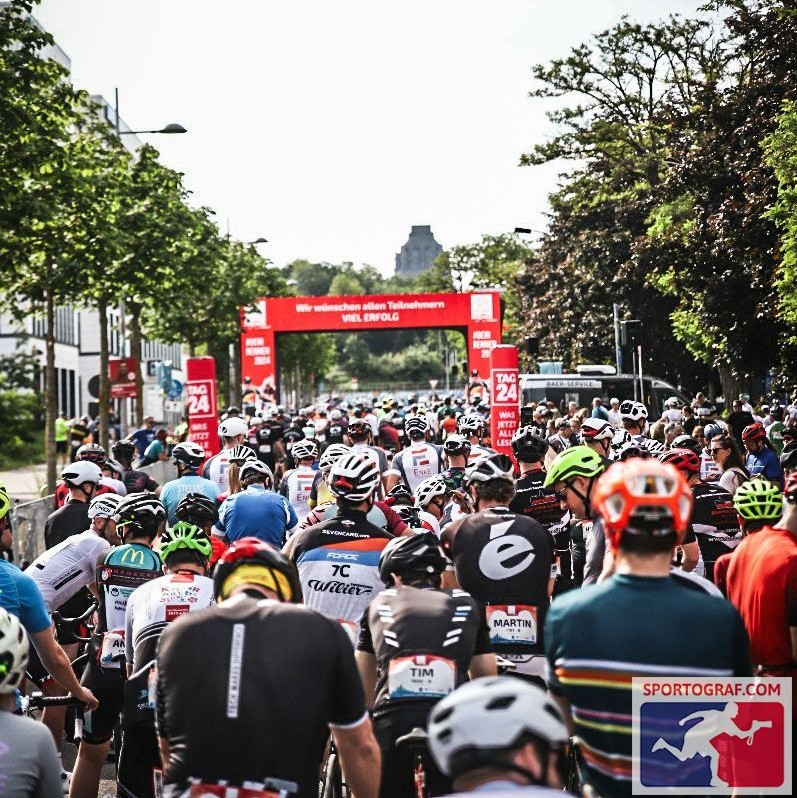
The Magic of the Peloton
One of the key strategies I learned in this race is the importance of riding in a peloton. A peloton is a tightly-packed group of cyclists that move together like a well-oiled machine. The beauty of the peloton lies in its efficiency: riding in the middle, you can almost effortlessly roll at over 40km/h, thanks to the significantly reduced air resistance. It’s like drafting behind a truck, but with a lot more camaraderie and a dash of risk.
Being at the front of the peloton, however, is a different story. You face the brunt of the air resistance, which is utterly exhausting. That’s why it’s crucial for everyone in the peloton to take turns at the front, ensuring the effort is evenly distributed. It’s a delicate balance of give and take, where teamwork is essential.
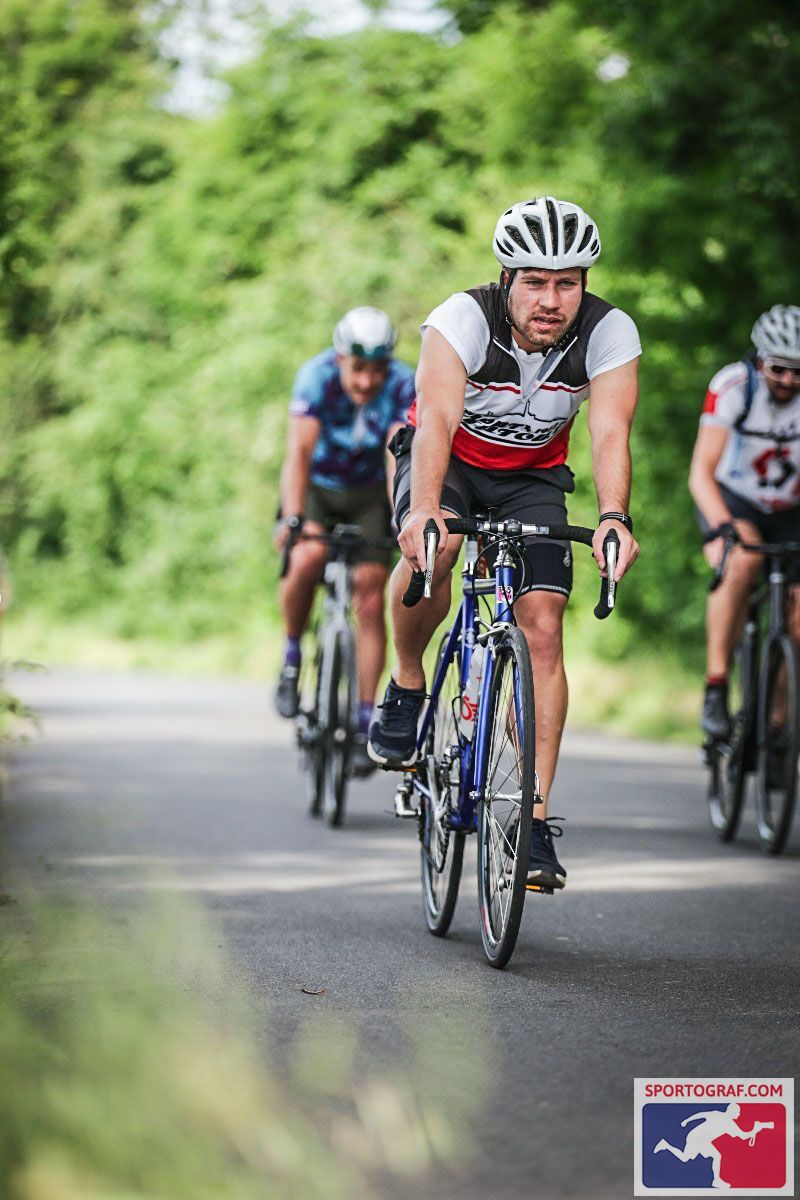
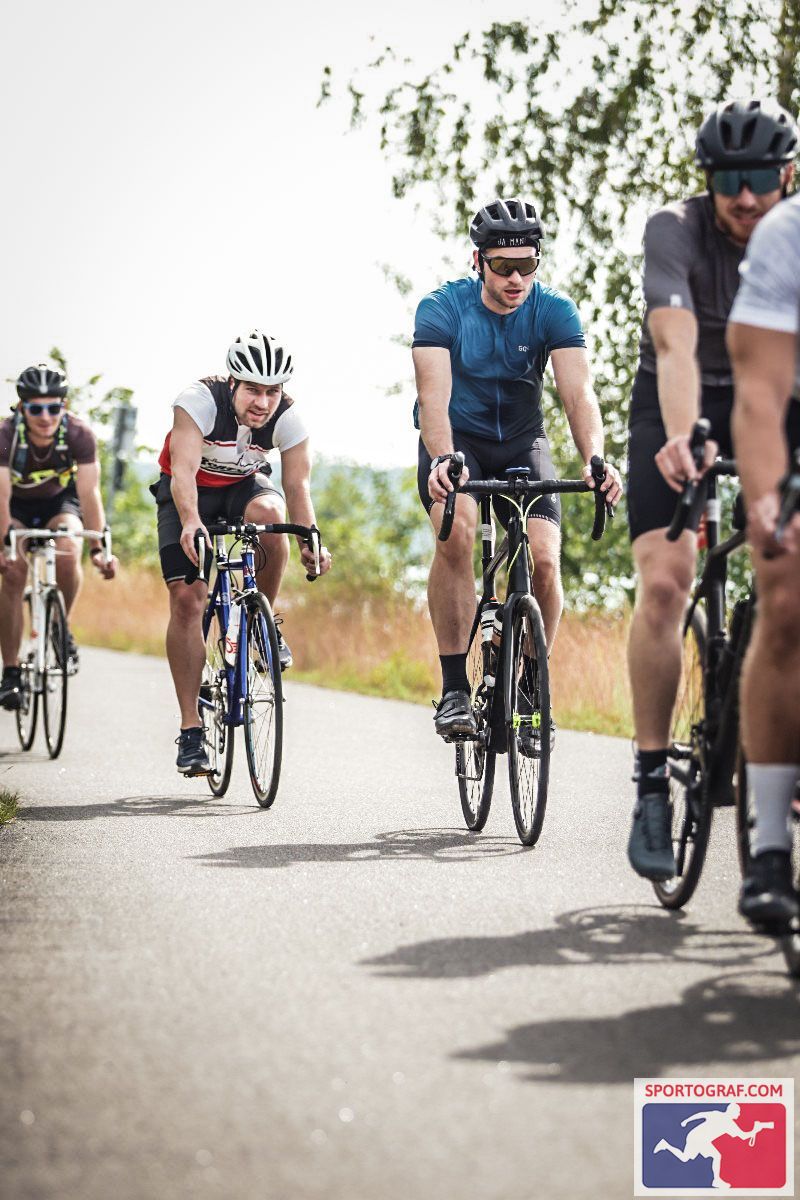
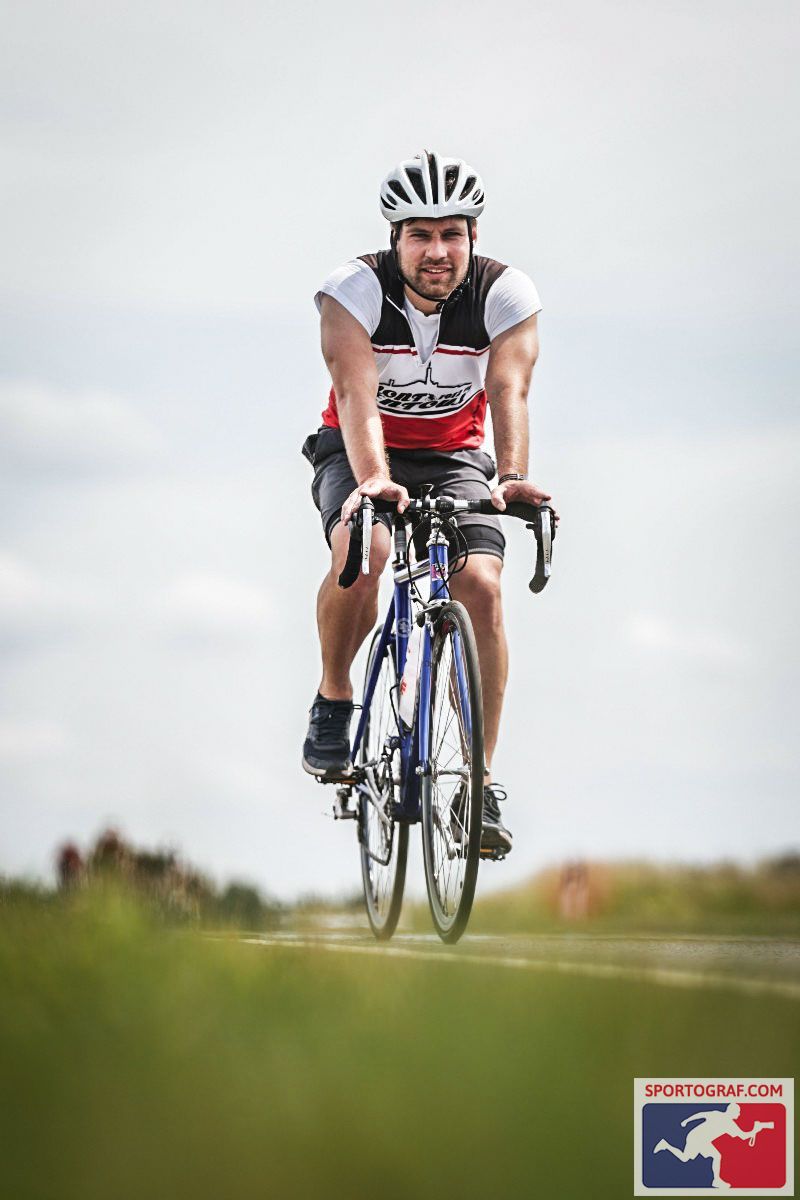
The Race Dynamics
The race was divided into categories based on average speeds. The fastest groups, averaging around 40km/h, started first, followed by slightly slower groups, and so on. Choosing the right category was a strategic decision. Start with a group that’s too fast, and you’ll be drained trying to keep up. Opt for a slower group, and while you might feel like a hero pulling the pack, your overall time won’t be that great.
I had the impression that the slower groups tended to be more chill and less competitive, which suited my cautious nature. In these groups, sudden changes in speed or direction were uncommon, reducing the risk of collisions. However, even in a more laid-back peloton, it was crucial to maintain a careful balance: stay close enough to minimize air resistance, but not so close that a slight miscalculation could result in a painful crash.1
Strategy and Reserves
An important insight from the race is to avoid being at your limit all the time. Keeping a strategic reserve of strength of say 20% is crucial. Sometimes, you need extra strength to accelerate after a bend, climb a hill, recover from a mishap, or catch up with the group. If you fail to keep up even briefly, you might fall behind and have to ride solo until another group catches up with you. This solo effort can be far more exhausting than the short bursts needed to stay with the peloton.2
Only experience can give you the ability to judge how to divide up your strength and energy properly. This time I was in quite fast groups for the first 50km. It felt exciting at this point. As time went on, my legs got heavier and heavier, so I couldn’t keep up for the last 15km of the race. I rode the last few kilometers slower and slower all the way to the finish line. The thought that the finish is not far away gave me the strength and confidence to hold out a little longer.
The ability to keep going despite exhaustion and pain is the soul of cycling.
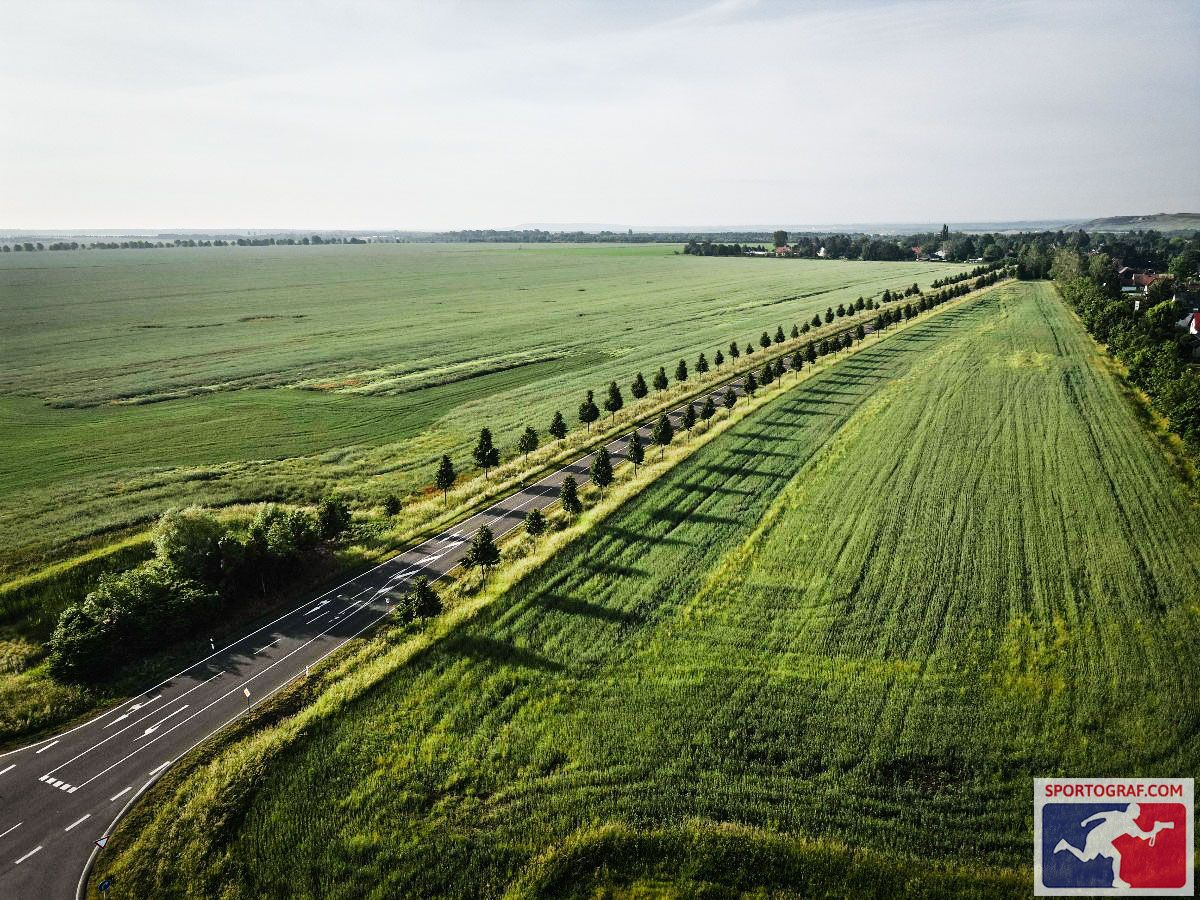
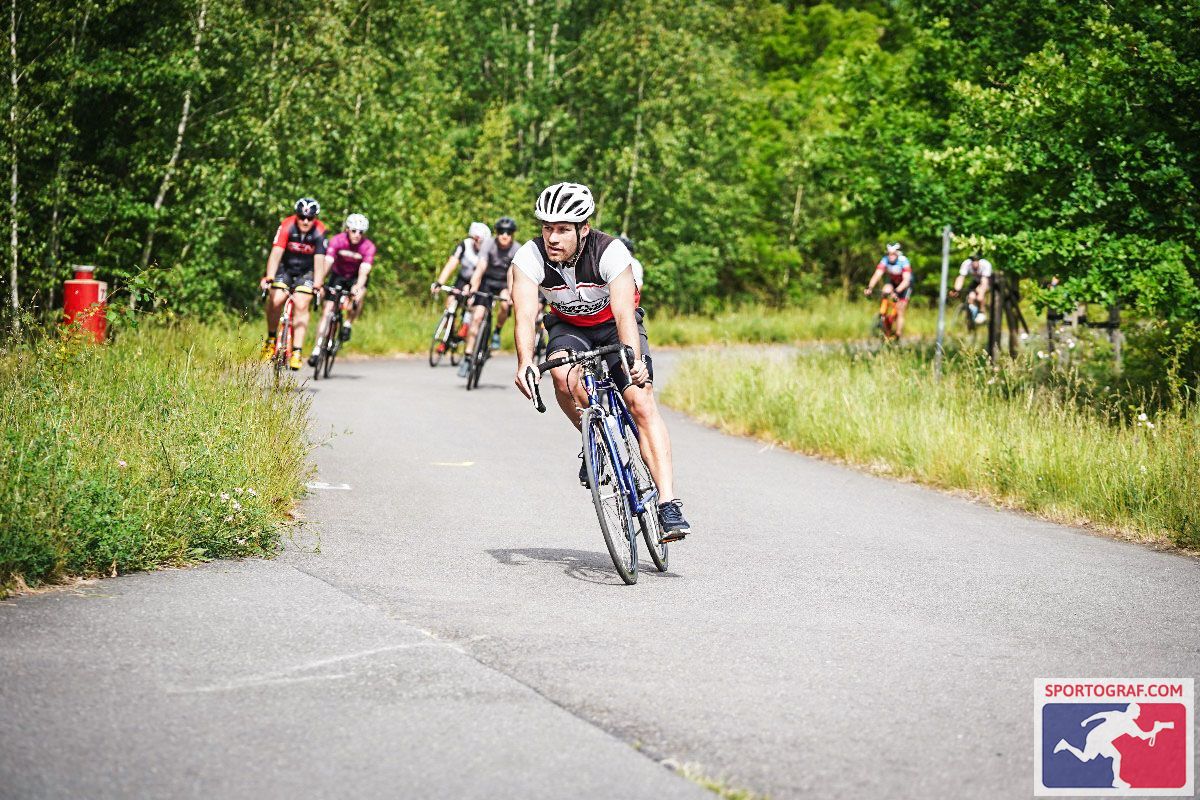
Mental and Physical Challenges
Riding in a peloton is not just physically demanding; it’s a mental workout too. Unlike my solo rides where I can let my mind wander, in a peloton, every second demands my full attention. I had to constantly monitor the wheel in front of me, ready to react instantly to any sudden movements. This constant vigilance was exhausting in its own right.
The race itself was a rollercoaster of emotions. The first half was sheer fun, fueled by adrenaline and the thrill of speed. But as fatigue set in, the mental battle began: the urge to give up versus the determination to finish. It’s a strange, almost masochistic dance of suffering and satisfaction.
Essential Gear for the Race
Participating in a race like the Jedermannrennen requires more than just physical preparation. Having the right gear is crucial for both performance and safety. Here’s what I used:
- The Bike: Whether you have a sleek, lightweight carbon-frame bike or a good old vintage steel-frame bike from the ’70s, the choice is yours. You’ll see a wide variety of bikes at the race, and it’s all about what you’re comfortable with.
- Comfortable Road Bike Shorts & Jersey: Investing in a good pair of road bike shorts and a jersey can make a huge difference. The right clothing helps reduce chafing and keeps you comfortable during the ride.
- Helmet: This is mandatory for good reasons. Safety should always come first, and a helmet protects you in case of falls or accidents.
- Water and Provisions: Staying hydrated and maintaining your energy levels is key. I prefer ordinary chocolate bars as my go-to snack. The trick is to eat slowly and steadily rather than all at once when you get hungry.
The Finish Line
Crossing the finish line was a moment of pure joy. All the exhaustion melted away as a flood of endorphins surged through my body. I had done it—I had finished my second bike race and earned my finisher medal. The sense of accomplishment was immense, making all the hard work and mental strain worthwhile.
Participating in the Jedermannrennen was a fantastic experience. It pushed my limits, both physically and mentally, and gave me a new appreciation for the dynamics of group cycling. While I still cherish my solo rides, there’s something undeniably thrilling about the collective effort and speed of a peloton. I’m already looking forward to my next race, eager to dive back into the organized chaos of competitive cycling.
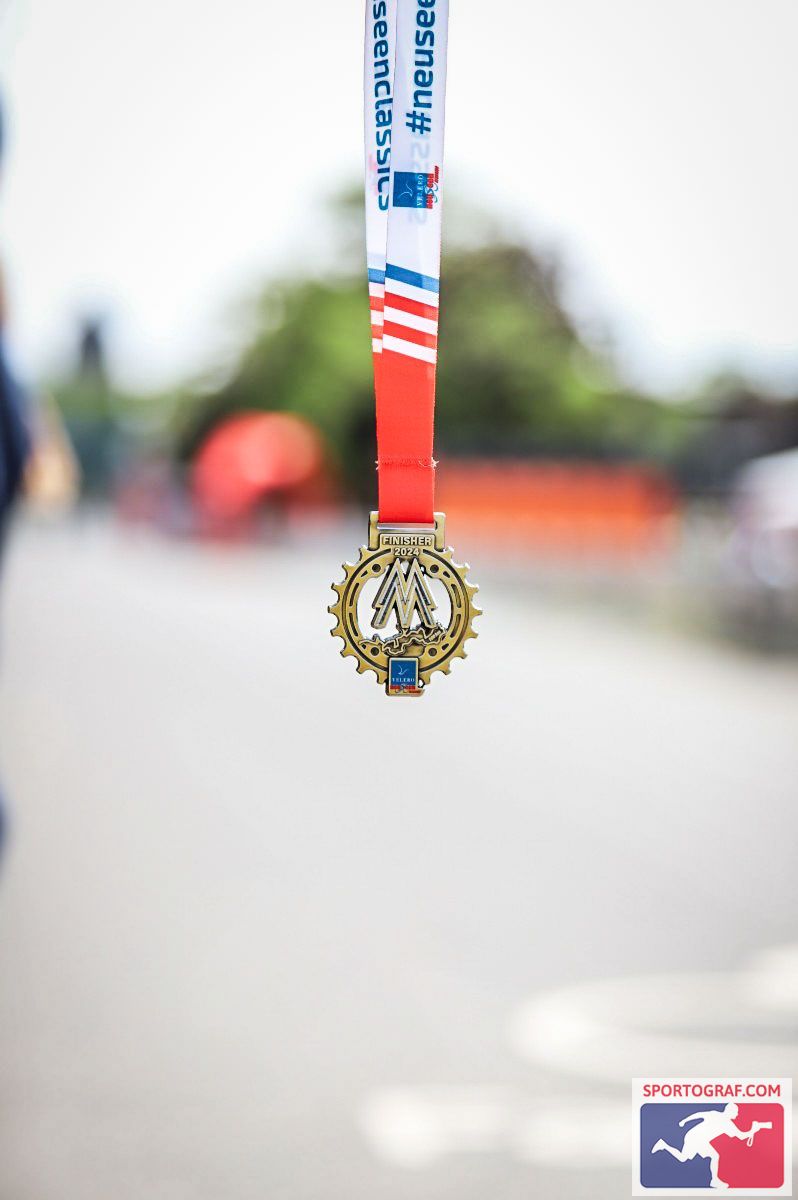
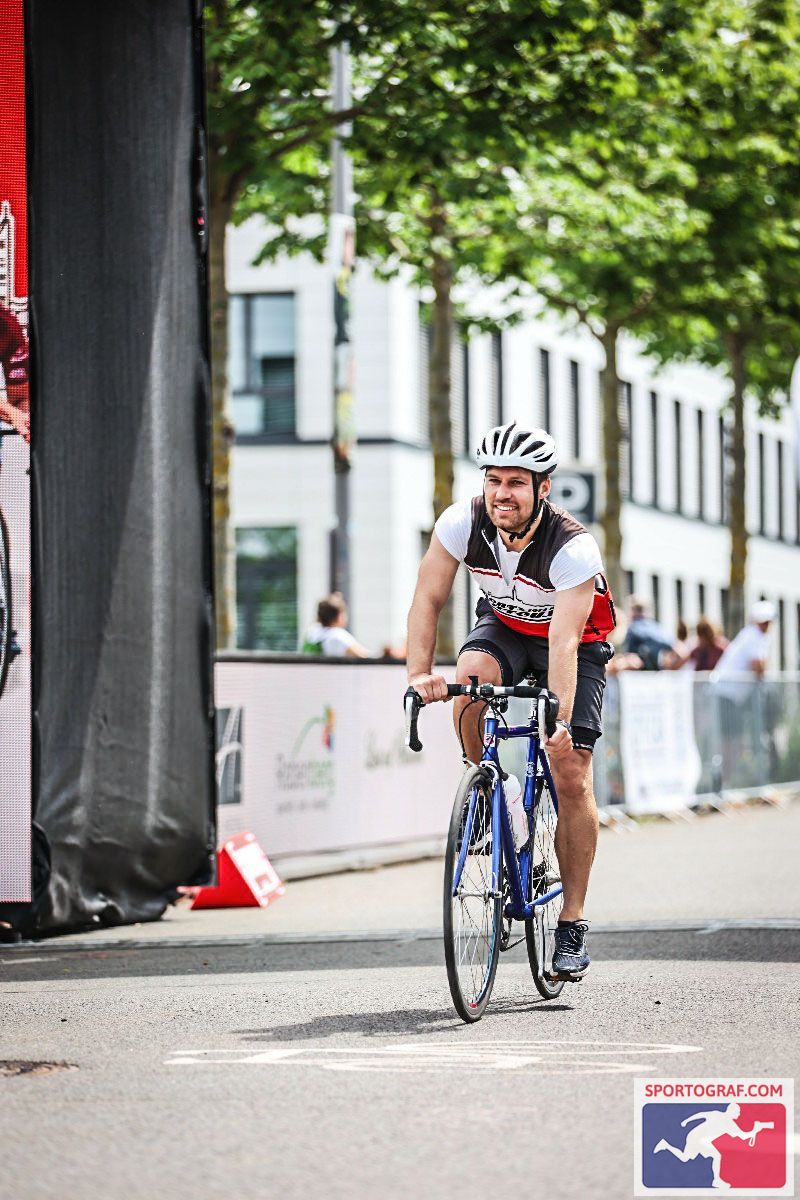
-
For me this situation is similar to Arthur Schopenhauer’s famous hedgehog’s dilemma ↩
-
Think like Napoléon Bonaparte preparing for battles: Hold back reserve troops to throw into the fray at critical moments. This turns the tide and secures victory. ↩